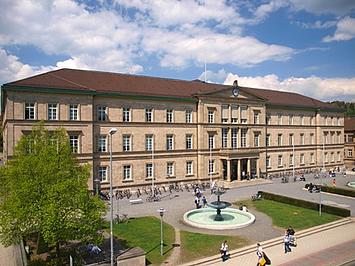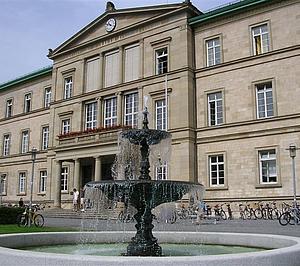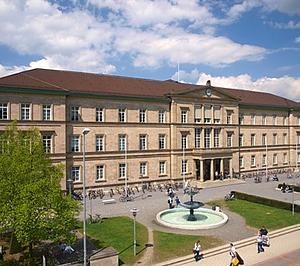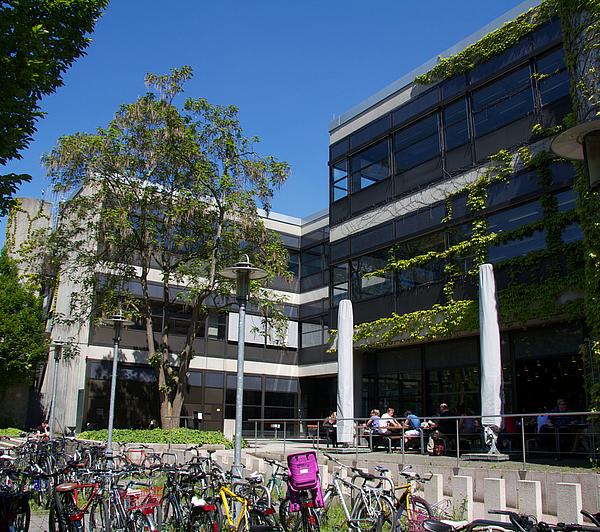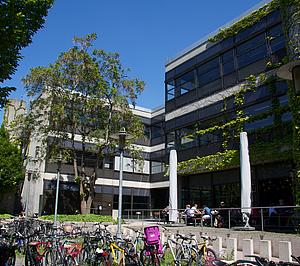The financial crisis of 2008 has partially originated from poorly regulated, risky financial instruments.
To avoid such crises in the future, financial and regulatory institutions need experts trained in both accounting and finance. Combining analytical skills in financial risk management with professional knowledge in internal and external accounting, the M.Sc. Accounting and Finance features an integrated analytical approach to graduate education in these fields.
Other than for the difficult task of regulating financial markets, knowledge taught in this program is of great importance in several fields of business that rely on risk management and an understanding of how incentives determine managers’ behavior in both financial and non-financial firms. However, the scope of the program reaches far beyond the limits of these two fields of business.
Students who enroll in this program may specialize in either Accounting or Finance through advanced field courses or alternatively choose a more balanced portfolio of courses in both fields. Other courses focus on institutional aspects pertaining to Corporate Governance and Auditing. Importantly, the program includes theory and application of empirical methods as employed in the practice of Empirical Banking or in institutions aiming at international financial stability.
Curriculum
The M.Sc. in Accounting and Finance is designed as a 3-semester program, taught according to the European Credit Transfer System. Successful completion requires students to achieve a total of 90 ECTS credits.
The curriculum includes both courses in Accounting and Finance. Core courses are designed to teach important foundations, while field courses allow students to specialize according to their individual interests and abilities. Most of the courses are taught in English, some in German. Successful completion of the program also requires a Master thesis (24 ECTS credits), written in the third and final term.
Professional career
Graduates have excellent career prospects across a wide range of fields in financial institutions such as banks and insurance companies, in auditing firms, management consulting, industrial firms and the public sector. They will be attractive candidates for all positions that require institutional knowledge, analytical skills and/or expertise in empirical research.
Ph. D. track
Graduates will also find themselves well-positioned to pursue a Ph.D. subsequent to this M.Sc. program. Towards this end, students may study this M.Sc. program on a Ph.D. track, putting themselves on a fast track to a doctoral degree.
Admission to the M.Sc. in Accounting and Finance requires a Bachelor’s degree in Business Administration or Economics with excellent grades. The degree should preferably amount to 210 ECTS. Students entering with a 3-year Bachelor degree (180 ECTS credits) are required to earn 30 additional ECTS credits in order to obtain a Master degree. Applicants are expected to have solid intermediate level knowledge in Accounting, Finance and Quantitative Methods (Math and Statistics). In addition, applicants must be fluent in both English and German.
The program is free of tuition fees for all EU residents. The state of Baden-Württemberg has introduced fees for international non-EU students and second-degree students. For background information and for fee exemption options, please refer to our homepage.
Dates
Admission is subject to a competitive selection procedure that includes individual interviews with faculty members. Shortlisted candidates from overseas will be interviewed in a video conference.
Application deadline: May 15
The program starts at the beginning of October.
Please refer to our homepage to find out when we will be holding interviews this year.
The School of Business and Economics at the University of Tübingen is committed to high-level academic education in both business administration and economics. It features a faculty of 26 professors and about 45 junior researchers, all of whom are actively engaged in academic research. Our Bachelor and Master programs mirror the widely respected academic expertise of the faculty. Students benefit from courses taught at the frontier of academic research as well as from dedicated tutoring and learning in small groups with close contact to academic staff.
The School of Business and Economics offers three Bachelor of Science programs and ten different Master of Science programs that allow students to specialize in areas with promising career prospects.
The Master programs at the School of Business and Economics
- Accounting and Finance (M.Sc.) >
- Economics (M.Sc.) >
- Economics and Finance (M.Sc.) >
- European Economics (M.Sc.) >
- European Management (M.Sc.) >
- General Management (M.Sc.) >
- International Business (M.Sc.) >
- International Economics (M.Sc.) >
- Management and Economics (M.Sc.) >
- Data Science in Business and Economics (M.Sc.) >


